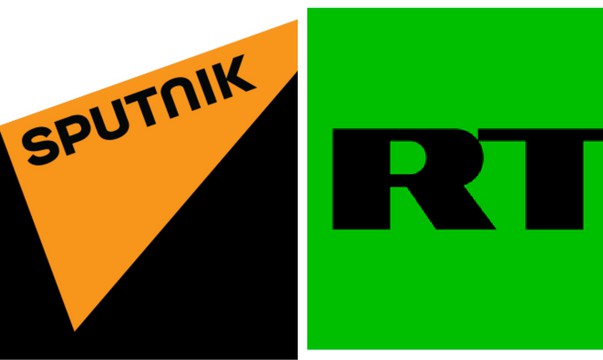; Date: Wed Sep 13 2017
Tags: Russia »»»» Social Media Warfare »»»» Election Hacks »»»»
Russia hacked the 2016 US elections, getting Donald Trump elected in the process, giving us all headaches and the prospect of the USA being ruined. The NY Times and other news outlets have pushed this story from many angles. This particular article covers not the hacks on the election system, but the information warfare that preceeded the election, and has been aimed at other countries as well. It's been widely reported since 2014 at least that Russia-intelligence-service-connected-companies are operating "spam farms" that spew targeted content into social media networks, into blog comments, and into fake-news-blog websites. The purpose of these operations is to make the population believe fictions, and to act on those ficitious ideas. For example a story surfaced in Germany a couple years ago that a young girl had been raped by Muslim refugees of the sort that have flooded into Germany thanks to the Syrian civil war. The police were covering up the crime, supposedly, for some unknown reason. RT News and Sputnik News acted as amplifiers to other social media postings and protest rallies. The thing is, there was no truth to the story. There had been a young girl arrested who initially told the story of being raped, but then she recanted that story to cover up the truth of some other event in her life. These Russia-connected organizations amplified the false story, and it became a large domestic issue spreading the idea that Merkel was dangerously accepting immigrants who were raping people right and left, and it even became a diplomatic issue between Russia and Germany. All over a piece of fake news amplified by actors connected to the Russian government. This sort of misinformation can, and has, swayed recent elections. I have collected several news reports on this topic going back a few years at Russia's use of Social Media channels and the Internet in Government-Government warfare

"After RT and Sputnik gave platforms to politicians behind the British vote to leave the European Union" the United Kingdom government issued a report warning that foreign governments tried to interfere with the Brexit election. It would serve Russia's government for the EU to be weakended by the United Kingdom's exit from the EU. See:
https://publications.parliament.uk/pa/cm201617/cmselect/cmpubadm/496/496.pdf
In January 2017, USA officials released a report describing Russia's meddling in the 2016 election as the "political equivalent to 9/11". In the report: “Russian President Vladimir Putin ordered an influence campaign in 2016 aimed at the U.S. presidential election. Russia’s goals were to undermine public faith in the U.S. democratic process, denigrate Secretary Clinton and harm her electability and potential presidency. Putin and the Russian government developed a clear preference for President-elect Trump.”
https://www.dni.gov/files/documents/ICA_2017_01.pdf
RT and to a lesser extent Sputnik News are called out as Kremlin-backed/owned news outlets. Both act to disseminate Russia-government talking points, and act to amplify information posted through the social media accounts used by other parts of Russia's social media warfare system. I frequently peruse content produced by RT and Sputnik News, and while they often have interesting stories and information to present it's obvious that both are highly slanted. The general tone of both websites is that everything Russia does is enlightened and produces a lot of goodness in the world, while everything The West does is clueless and destined to cause great pains in the world.
Unfortunately that slant is not without its reality. For example the USA committed great sins in Iraq and the actions of the Bush43 administration such as the de-Baathification of Iraq and some other actions led directly to a power vacuum in Iraq and Syria which led directly to the growth of ISIS. There's a lot more which could be said, but that would distract from the current topic of Russia's social media warfare system. Russia is not all that enlightened an actor on the world stage, and their actions cause a lot of pain and suffering in the world.
RT News has been asked to register as a "foreign agent" under the Foreign Agents Registration Act.
https://www.rt.com/usa/402923-rt-foreign-agent-doj/
RT is very open about its mission: To “break the monopoly of the Anglo-Saxon global information streams,” as said by Putin himself.
https://www.rt.com/news/putin-rt-interview-full-577/
Asked about that phrase, "break the monopoly of the Anglo-Saxon global information streams,” Putin's Press Secretary explained that “The whole trend of global media was set by Anglo-Saxons.” By that I think he refers to the obviousness that the BBC and the USA press tends to set the tone of world news coverage.
Putin's Press Secretary went on to say that the transformation and acceleration of information technology (e.g. The Internet) offered an opportunity. The "information war" resulting freer information dissemination, and a "clash of ideas", supposedly is not of Russia's choosing. In the new reality a Celebrity can tell their followers to do something and that will shape society's actions. Celebrity, in this case, isn't limited to the traditional meeting of a Movie Star or TV Star, but can be anybody with a large social media following.
Russia has a long history of disseminating false information. (So, too, does the USA, but the NY Times report does not mention this, curiously.) In 1947, Stalin formed the Communist Information Bureau (Cominform), a Belgrade-headquartered forum to coordinate messaging among European Communist parties. Cominform worked through Communist newspapers all through the world to disseminate falsehoods. The USA response was to publish stuff that was also slanted, not necessarily truth-filled, that countered the Soviet propaganda. The result was a war, of sorts, of information, and in that era it was waged through pamphlets and posters and newspapers printed on paper.
Today's version of that information war is now conducted through Facebook or Twitter accounts, and blogs filled with fake news.
Russia took from the Arab Spring that Twitter and other social media networks can be powerful tools. Tools that don't have to be limited to political activists seeking to change the system.
An example is cited from July 2016, in Turkey during the supposed Coup against the Turkish government. A report began circulating that thousands of Turkish police officers had surrounded a NATO air base in Turkey (presumably the one where NATO keeps its nuclear weapons). Fact is that the police officers were there to keep the peace during a planned protest outside the NATO base, and there was nothing sinister going on. That didn't stop Russia-connected social media accounts from blowing this out of proportion.
http://www.thedailybeast.com/how-russia-dominates-your-twitter-feed-to-promote-lies-and-trump-too and https://www.intelligence.senate.gov/sites/default/files/documents/os-cwatts-033017.pdf
The social media accounts used hashtags like "#Benghazi" or "#TrumpPence16" and the frenzy built up to the point that Trump’s campaign manager at the time, Paul Manafort, said: “You had the NATO base in Turkey being under attack by terrorists.” Recall that Manafort himself has a long career of working for high-ranking Russian interests.
http://www.politifact.com/truth-o-meter/statements/2016/aug/16/paul-manafort/trump-campaign-chair-misquotes-russian-media-makes/
Source:
https://www.nytimes.com/2017/09/13/magazine/rt-sputnik-and-russias-new-theory-of-war.html











